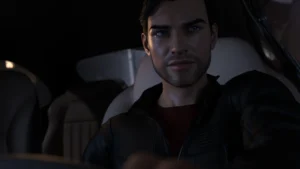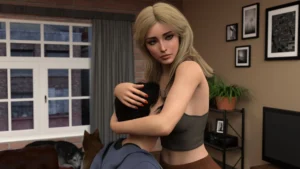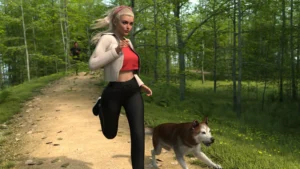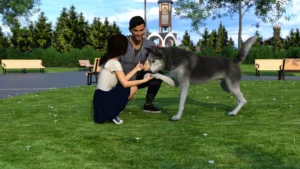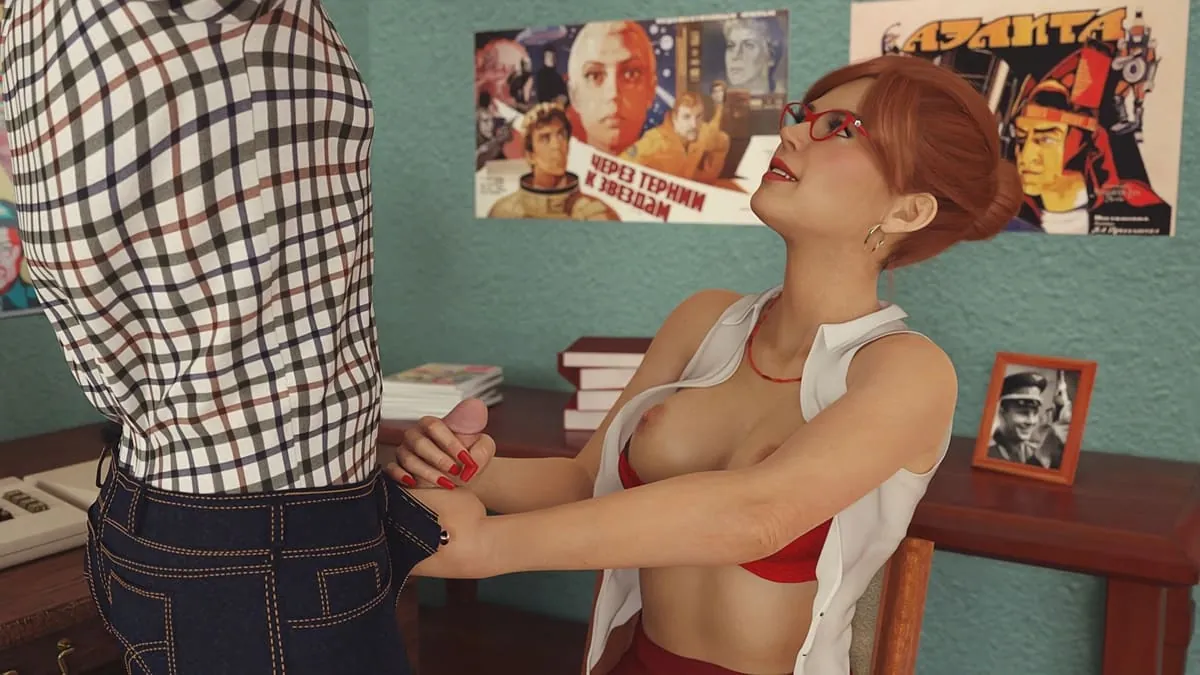
Race of Life
Play Race of Life
Race of Life review
A Deep Dive into the Game’s Mechanics and Story
In the world of interactive games, ‘Race of Life’ stands out for its unique blend of storytelling and player choice. This game offers a rich narrative where players can engage with various characters, each with their own storylines and interactions. The game’s focus on character development and player-driven outcomes makes it a compelling experience for those interested in immersive storytelling.
Gameplay Mechanics and Storyline
Let me tell you about the first time I truly messed up in Race of Life. I was navigating a tense conversation with my in-game business partner, Alex. I chose a flippant, sarcastic response, thinking it would show confidence. The game didn’t flash a giant “RELATIONSHIP DECREASED” warning. Instead, Alex just got quiet. Later, during a crucial investor meeting, he was hesitant to back my play, and the entire deal fell through. That’s the magic of this game—your decisions don’t just change dialogue; they reshape your entire world. 🎮
This experience is at the very heart of what makes the Race of Life gameplay so compelling. It’s not just about what you do, but why you do it and how the world remembers.
Understanding the Game’s Narrative
At its core, Race of Life is a masterclass in interactive storytelling. You don’t watch a story unfold; you build it with every choice, big and small. The game is framed around your character’s return to their hometown, a place brimming with old rivalries, forgotten friendships, and personal demons. The narrative isn’t a straight line from A to B; it’s a web of interconnected events that you influence directly.
The game’s approach feels less like playing a movie and more like writing a novel where you control the protagonist. 🖋️ There are no cutscenes where you put the controller down. Even during seemingly scripted events, you often have agency—a chance to interrupt, a choice to walk away, or an option to escalate the situation. This constant involvement makes the story yours.
Pro Tip: Pay close attention to environmental details. Notes on refrigerators, news reports on the radio, and overheard conversations often provide context that makes your interactive storytelling decisions feel more informed and impactful.
The Race of Life gameplay loop brilliantly blends traditional exploration and light puzzle-solving with its signature dialogue and decision-making systems. You’ll spend your time:
* Reconnecting with old acquaintances. 👥
* Managing your character’s career and personal projects.
* Navigating complex moral dilemmas that have no clear “right” answer.
Character Interactions and Development
This is where Race of Life truly shines. The character development in games is often measured in stat increases or new abilities. Here, it’s measured in emotional growth and changing relationships. Every character you meet has their own motivations, secrets, and biases. Your interactions with them are the primary engine for growth.
For example, your relationship with your character’s estranged father isn’t defined by a single “Forgive Him” or “Hate Him” button. It’s built through dozens of micro-interactions: Do you return his calls? 🗣️ Do you bring up past hurts in arguments? Do you accept his awkward attempts at help? The game tracks it all, creating a living, breathing connection that evolves organically.
The supporting cast is just as deep. I found myself genuinely caring about the fate of side characters, like a young neighbor struggling with their own family issues. Helping them or turning them away didn’t just affect my “karma”; it changed how my own character viewed the world, opening up or closing off new narrative paths. This depth is a hallmark of the best narrative-driven games.
Here’s a glimpse of how key relationships can evolve:
| Character | Initial Relationship | Potential Evolutions |
|---|---|---|
| Alex (Business Partner) | Cautious, professional | Unwavering ally, bitter rival, or indifferent acquaintance |
| Maya (Old Friend) | Warm but distant | Reignited romance, deep platonic bond, or permanent falling out |
| Mr. Evans (Father) | Strained and formal | Emotional reconciliation, bitter acceptance, or total estrangement |
Player Choice and Consequences
The phrase player choice consequences is often thrown around, but Race of Life defines it. The game operates on a “no take-backs” philosophy. There is no reloading a save to see the other option without consequence. This design decision makes every choice feel weighty and authentic. 🤔
The consequences aren’t always immediate or obvious. That sarcastic remark to Alex? It seemed inconsequential until it cost me a business deal hours later. A small act of kindness for a stranger might later result in them vouching for you when you need it most. The game has a long memory, and it brilliantly ties your past actions to your present circumstances.
Let me give you a concrete example from my second playthrough.
Example: The Community Center Dilemma
Early on, you learn a powerful corporation wants to buy and demolish the local community center to build a luxury spa. You’re asked to help gather support to stop it.
- Choice A: I wholeheartedly joined the protest, using my character’s influence to rally the town. I made powerful enemies in the corporate boardroom but became a local hero.
-
Consequence: This unlocked unique storylines with the townsfolk and gave me a strong support network for personal crises. However, it permanently closed off career advancement opportunities with the corporate entities in the game.
-
Choice B (from a different playthrough): I remained neutral, focusing on my own goals. I thought I was playing it smart.
- Consequence: The community center was demolished. The town became more cynical, many characters became colder towards me, and I felt a tangible sense of loss in the game world, even though my career path was wide open. 😥
This is the essence of the Race of Life gameplay. There are no universally “good” or “bad” paths, only different shades of life. The player choice consequences create a deeply personal story that reflects your own priorities and morals. You’re not guiding a character to a predetermined ending; you’re discovering what ending your choices naturally lead to.
The sheer number of branching paths ensures massive replayability. My “successful but lonely” entrepreneur playthrough felt entirely different from my “community-focused but financially struggling” one. This incredible depth is what sets it apart in the world of narrative-driven games. Your journey through the Race of Life is uniquely yours, a testament to how far interactive storytelling has come. 🏆
In conclusion, ‘Race of Life’ offers a unique gaming experience that combines engaging storytelling with the freedom of player choice. By exploring the game’s mechanics and narrative, players can uncover a rich world of character interactions and storylines. Whether you’re a fan of interactive storytelling or just looking for a game with depth, ‘Race of Life’ is certainly worth exploring.









